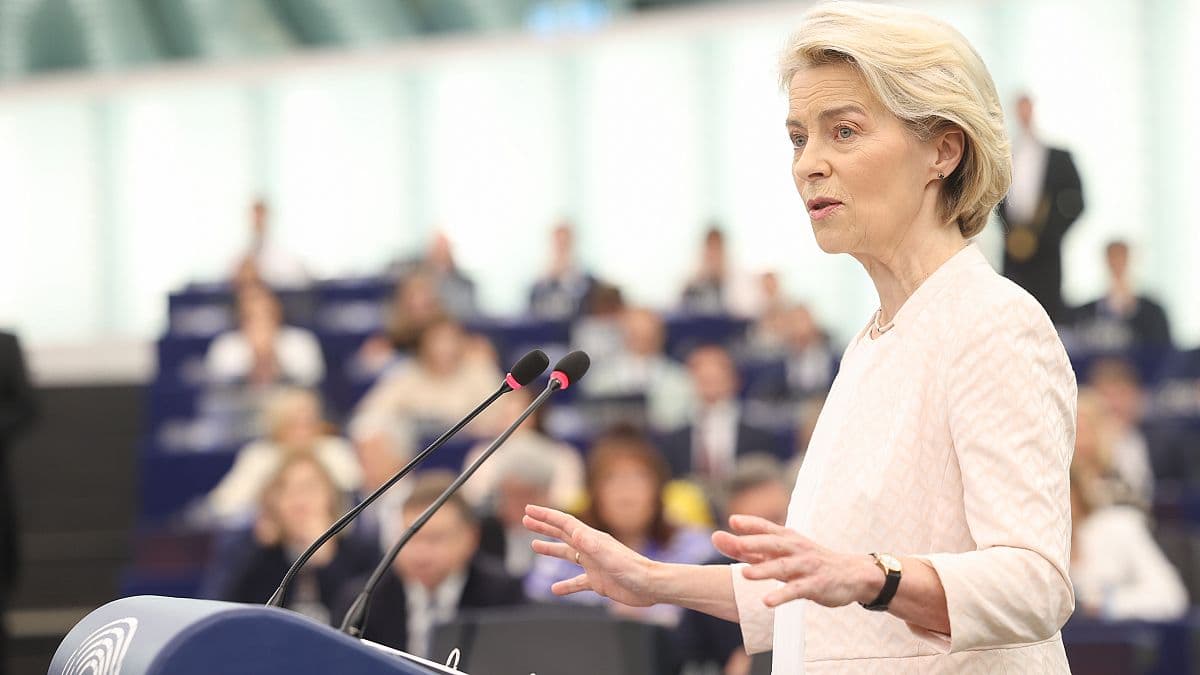AI-Generated Summary
Learn moreContext and Importance of Housing Crisis
European Commission President Ursula von der Leyen has announced her commitment to addressing the housing crisis within the EU, an area traditionally seen as having limited competence for the bloc. This initiative arises in response to significant increases in housing costs; between 2010 and 2023, average rents in the EU rose by nearly 23%, while house prices surged by almost 48%. Such dramatic changes have sparked protests across major cities like Dublin, Amsterdam, and Lisbon, highlighting the urgent need for affordable housing solutions.
The Need for an EU Housing Commissioner
In her address to the European Parliament, von der Leyen emphasized that many Europeans are struggling to find affordable homes. She has proposed the establishment of an EU commissioner specifically tasked with housing policy, a demand made by Socialists to secure support for her mandate. The proposed European affordable housing plan aims to address the needs of various demographic groups, including students, single parents, and young workers, who are increasingly affected by the housing crisis.
Investment Gaps and Social Housing Challenges
Despite the urgent need for action, there exists a considerable investment gap in social and affordable housing across member states. Currently, public funds can only target the most vulnerable populations. Christophe Rouillon, president of the PES group in the European Committee of the Regions, has called for the recognition of social and affordable housing as a service of general economic interest, emphasizing the necessity for broader support beyond disadvantaged groups.
Policy Proposals and Financial Strategies
To tackle the investment gap, von der Leyen's policy plans include a review of state aid rules, allowing member states greater flexibility in supporting housing initiatives. Additionally, there are proposals for member states to double their planned cohesion policy investments in affordable housing. The establishment of a pan-European investment platform for affordable and sustainable housing is also in the works, in collaboration with the European Investment Bank, to attract both public and private investments.
Regulating Short-Term Rentals and Addressing Homelessness
The Social Democrats have proposed measures to regulate short-term rental platforms like Airbnb, which can negatively impact local housing markets. They have also set binding targets to eliminate homelessness by 2029, although these proposals were not included in von der Leyen's initial policy program. Currently, it is estimated that 890,000 individuals are homeless across the EU, emphasizing the need for effective measures in this area.
Sharing Best Practices Among Member States
Addressing homelessness and housing issues requires the sharing of successful strategies among member states. For instance, Finland has made significant progress in dealing with homelessness, showcasing that social challenges can be effectively tackled. MEP Li Andersson has highlighted the importance of sharing good practices to foster effective solutions across the continent.
Next Steps and Candidate Nomination
Von der Leyen has given member states until the end of August to nominate candidates for the new housing commissioner, which will shape the future of housing policy within the EU. The outcomes of this nomination process will determine the powers and responsibilities of the commissioner, marking a pivotal moment in the EU's approach to addressing the housing crisis.
